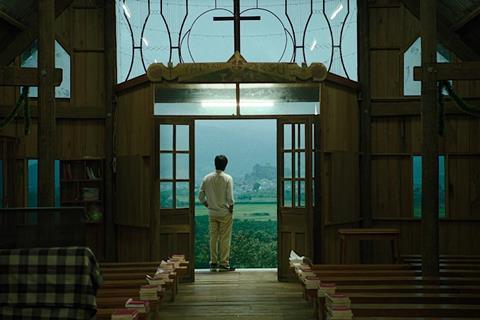The clock is always ticking and sales agents representing indie films at major festivals have as little as two days to close the key deals before the opportunity vanishes. This was one of the insights provided at Sarajevo’s Cinelink Industry Days panel ‘Perspectives on Independent Cinema and Global Content’ this week.
Sébastien Chesneau, founder of Dubai-based sales outfit Cercamon, emphasised the need to act quickly at film markets. “There is a window of maybe two days when the distributors are still at the festival and we can catch them and create a buzz,” Chesneau said.
Cercamon benefited this year from the success of Vietnamese director An Pham Thien’s intense family drama Inside The Yellow Cocoon which won the Camera d’Or at Cannes after playing in Directors Fortnight. It has now sold strongly and travelled to other festivals all over the world - but Cheneau had to move at speed to get the film noticed.
“I was betting on the fact that if I loved the film, I wouldn’t be the only one,” Chesneau said of why he was determined to take on sales in spite of the drama’s three-hour running time and challenging themes that include death by suicide. “I knew the film would do well, at least for festivals. Would it go further? Yes, maybe, but we need to work on it.”
“You need to strategise and strategise quickly, deciding on the trailer and the poster, [and] how and when you are going to show the film to an audience for the first time,” he explained.

Chesneau and team organised a preview screening for French distributors in Paris in advance of the festival and a press screening in London. ”You want your film to be reviewed as soon as possible. That is another key thing,” he said of how trade critics help sales agents reach their distributors. “You want the review to be out as soon as the world premiere has occurred.”
Marie Zeniter, vice president of sales at US distribution and sales outfit Utopia, highlighted the increasing challenges now facing non-English-language films in the US market as a result of consolidation in the North American marketplace.
“Things are getting a little complicated for streamers because what we have seen in the past few years is a series of mergers between these huge American studios,” said Zeniter, who specialises in selling streaming rights. She previously worked as director of sales at Magnolia Pictures.
“Every time we buy a foreign film, we have to evaluate its potential in terms of how it will reach its audience [theatrically in the US] but whether or not the streamers will be interested or not.”
Recent Utopia releases include Ali Abbasi’s Holy Spider, a drama about a serial killer of women in Iran, selected as Denmark’s entry to the international Oscar category. Zeniter provided the Sarajevo audience with some insight into just how much it costs for a foreign language movie to mount a proper Oscar challenge
“It’s a very graphic and violent movie and so it was always going to be heavy lifting for us to bring attention to it,” she said of Holy Spider. “First it was banned from Iran which was something we used to our advantage. Then suddenly the events in Iran happened,” she referred to the nationwide protests that sprang up to protest the killing of Mahsa Amini. When the film was shortlisted, it received exhaustive coverage in magazines and newspapers.
“These are things that help us not only for the audience but for me it was very helpful because I ended up selling the film to Netflix which was absolutely not a given when we picked up the film in Cannes.”
Zeniter estimated Utopia spent around “a quarter of a million dollars” on the Oscar campaign. “We stopped because we ended up not being shortlisted and so we missed the last month of the campaign,” she said, noting it would have been necessary to “go way beyond that” spend if the film had been nominated,
“Our goal when the company first was started was to be filmmaker- first,” she explained. “A lot of companies like to define themselves as that but the way we wanted to work with filmmakers was we really wanted to work with them on the marketing and campaigns so the film will be portrayed to the audience in the way the filmmaker intended it to be.”
She described Utopia as “very arthouse, independent oriented.” Recent Utopia pick ups include Divinity, Eddie Alcazar’s black and white 16mm thriller produced by Steven Soderbergh, and Anthony Chen’s English language debut, Drift.
The session was chaired by Elad Samorzik, artistic director of the Jerusalem Film Festival. Further panellists included Jim Kolmar, independent film programmer, South by Southwest Film & TV Festival, and freelance journalist Jessica Kiang.

























No comments yet